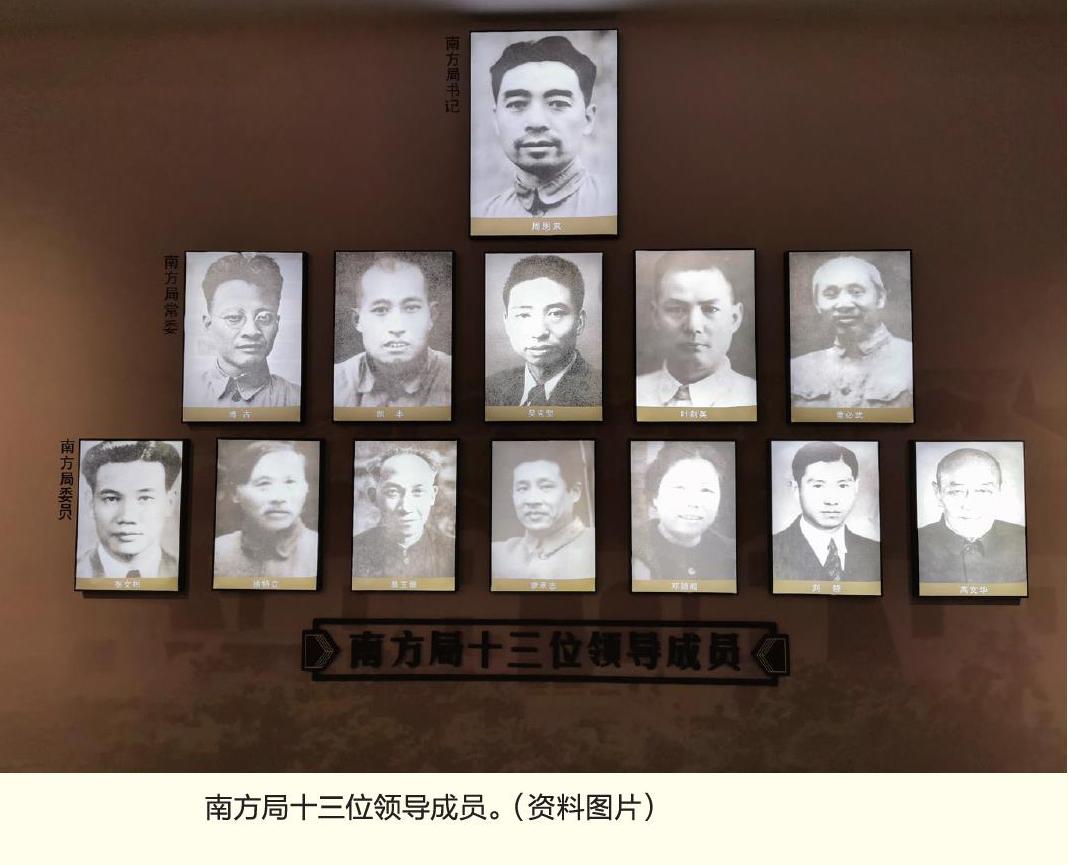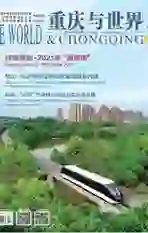中共中央南方局在重庆成立 为新中国外交事业奠定重要基础
2021-05-20


中国近代,历经几多沧桑,几多磨难,几多屈辱,几多抗争。在这苦难深重的时期,一个伟大的政党诞生—中国共产党,从此翻开中国历史的新篇章。
2021年,是中国共产党百年华诞。100年来,在中国共产党的指引下,中华民族谱写了自强不息、顽强奋进的壮丽史诗,神州大地焕发勃勃生机,人民生活幸福安宁。
2021年,也是“十四五”规划实施、开启全面建设社会主义现代化国家新征程的第一年,本刊将陆续推出“学党史 悟思想 办实事 开新局”系列报道,将巴渝大地波澜壮阔的红色历史娓娓道来,再现中国共产党昂首阔步走向世界的坚定步伐,以此激励我们不忘初心、牢记使命,行而不辍、开拓奋进。
抗日战争时期,中国共产党审时度势,及时制定了建立国际统一战线以反对日本法西斯主义的对外工作方针。但中共中央及其领导的抗日根据地被国民党政府“封锁得铁桶似的”,敌后抗战情形外界很难获悉。中国共产党为适应抗战相持阶段的新形势而建立中共中央南方局,其根本任务就是维护国共合作抗战大局、巩固发展抗日民族统一战线、推动抗战民主、争取抗战胜利。
1939年1月16日,中共中央南方局在重庆正式成立,以周恩来、博古、凯丰、吴克坚、叶剑英、董必武六人为常委,任命周恩来为书记,直接领导外事组积极开展外事活动。为寻求广泛的国际合作和支持,在中共中央的领导下,以周恩来为首的中共南方局利用在国统区工作的便利条件,广泛开展国际统一战线活动,搭建与国际社会联系、交往的桥梁,争取国际反法西斯力量的同情和援助,开拓了中共对外交往的新局面。在发展国际统一战线、夺取抗战胜利的过程中,中共也由此走向世界。
在恶劣艰险的环境中,中共中央南方局创造性地贯彻执行党中央正确的路线、方针、政策,进行了长达8年艰苦卓绝的斗争,为中华民族独立和中国人民解放事业建立了不朽功勋。中共中央南方局的历史见证了中国共产党主张建立的抗日民族统一战线的曲折发展道路,也为新中国的外交事业奠定了重要基础。
南方局是秘密机关,依托在八路军(又称“第十八集团军”)驻重庆办事处内,对外称“重庆八办”。南方局成立前,1938年初,长江局派周怡到重庆建立八路军重庆通讯处,任处长,在机房街70号设立机关。武汉失陷前夕,八路军武汉办事处和长江局大多数工作人员撤离,经水陆两路先后到达重庆,遂成立八路军驻重庆办事处,就设在原通讯处住址,南方局机关人员也住在这里。因人员增多、机房街房屋窄小,又在棉花街30号租了一所房子,仍不敷使用。且处市内闹区,日军飞机轰炸,随时有危险。办事处在近郊化龙桥附近红岩嘴大有农场找到一处适合的地方,开始建房。
1939年5月3日、4日,日军飞机数十架次轮番轰炸重庆,山城一片火海。重庆八办和《新华日报》在城内的房屋都被炸毁。这时红岩嘴13号的房屋已基本建成,当年夏,重庆八办和南方局迁到这里,一直到1946年5月。因为红岩嘴13号位于一座小山的半山腰上,中共党员和各界朋友秘密到这里来,都习惯地称“上山”。
南方局在城内还有一处机关,设在曾家岩50号,與国民党行政院和蒋介石的城内公馆相距不过一二百米。因周恩来是政治部副部长,对外就称为“周公馆”。周恩来和邓颖超,以及董必武、叶剑英等常住在这里。当时南方局的党派组、文化组、军事组、外事组、妇女组的工作人员也大都在这里工作。实际上,这里是对外接待活动最多的地方。
抗日战争期间,中共密切注视国际形势的变化,并不断根据这种变化调整对外政策。在国际政治风云变幻的复杂情况下,周恩来带领中共南方局准确判断和把握局势,对不同帝国主义国家、对同一帝国主义国家的不同时期政治态度加以区别,在坚持独立自主的原则立场,捍卫民族的根本利益的前提下,及时制定、调整国际统一战线的战略方针,为实现中共在抗日民族战争中的作用搭建了国际政治舞台。 (部分资料由中共重庆市委党史研究室提供)
编辑/杨艳
During the War of Resistance against Japanese Aggression, the Communist Party of China sized up the situation and promptly formulated the foreign policy of establishing an international united front to oppose Japanese fascism. As the CPC Central Committee and the resistance bases under its leadership were nevertheless "blocked like iron barrels" by the Kuomintang government, it was difficult for the outside world to pry into the situation of the War of Resistance behind the enemy's rear area. In order to adapt to the new circumstance at the Stalemate Stage of the War, South Bureau of the CPC Central Committee was established with the fundamental task of maintaining the overall cooperation between KMT and CPC in resistance against Japanese aggression, consolidating and developing the Chinese united front against Japanese aggression, promoting the democracy of resistance against Japanese aggression, and striving for the victory of resistance against Japanese aggression.
On January 16, 1939, the South Bureau of the CPC Central Committee was offcially established in Chongqing with Zhou Enlai, Bo Gu, Kai Feng, Wu Kejian, Ye Jianying and Dong Biwu appointed as the Standing Committee members, and Zhou Enlai as the secretary to directly lead the Foreign Affairs Group to actively carry out foreign affairs activities. In order to seek extensive international cooperation and support, under the leadership of the CPC Central Committee, the Southern Bureau of the CPC Central Committee, headed by Zhou Enlai, made use of the convenience of working in the KMT-controlled areas to widely carry out international united front activities, build bridges with the international community, and strive for compassion and assistance from international anti-fascist forces to open up a new outlook for the CPC's foreign exchanges. In the process of developing international united front and winning the War of Resistance against Japanese Aggression, the Communist Party of China also took a step to the world.
In the harsh and perilous environment, the South Bureau of the CPC Central Committee creatively implemented the correct route, principles, and policies of the CPC Central Committee, went through eight years of arduous struggle, and made imperishable historical contributions to the cause of the independence of the Chinese nation and the liberation of the Chinese people. The history of the South Bureau of the CPC Central Committee witnessed the tortuous development path of the Chinese united front against Japanese aggression advocated by the CPC, and laid a key foundation for the diplomatic undertaking of New China.
The South Bureau, a secret organ, was attached to the Chongqing Office of the Eighth Route Army (also known as the "18th Group Army"), and known to the public as the "Chongqing Eighth Office". Before the establishment of the South Bureau, in early 1938, the Changjiang Bureau sent Zhou Yi to Chongqing to set up the Chongqing Communication Office of the Eighth Route Army as director with an organ at No. 70, Jifang Street. On the eve of the fall of Wuhan, most of the staff of Wuhan Office of the Eighth Route Army and the Changjiang Bureau withdrew and successively arrived in Chongqing by land and water. The Chongqing Office of the Eighth Route Army was established and located at the address of the original Communication Office with the organ of the Southern Bureau set here as well. Due to the increase of staff and the narrow space in Jifang Street, another building was rented at No. 30 Mianhua Street, but the space was still insufficient. In addition, the downtown area of the city often suffered from Japanese aircraft bombing with imminent danger any time. The Office found a suitable place at Dayou farm in Hongyanzui near Hualongqiao in the suburb and initiated building construction.
On May 3 and 4, 1939, dozens of Japanese aircraft took turns to bomb Chongqing, setting the mountainous city on fire. Buildings of the Chongqing Office of the Eighth Route Army and Xinhua Daily in the downtown areas were all blown up. By this time, the buildings in Hongyanzui No. 13 had been basically completed. In the summer of that year, the Chongqing Office of the Eighth Route Army and the South Bureau moved here until May 1946. As Hongyanzui No. 13 was located halfway on a small hill, when CPC members and friends from all walks of life came here secretly, they usually said they were "going uphill".
The South Bureau had another organ in the city, No. 50 of Zengjiayan, only one or two hundred meters away from the Kuomintang Executive Yuan and Chiang Kai Shek's residence in the city. As Zhou Enlai was the Vice Minister of the Political Department, the organ was known as "Zhou's Mansion" to the outside world. Zhou Enlai and Deng Yingchao, as well as Dong Biwu and Ye Jianying dwelt here from time to time. At that time, most of the staff of the Party Group, Cultural Group, Military Group, Foreign Affairs Group and Women's Group of the South Bureau also worked here. In fact, it was the place that held external reception activities most then.
During the War of Resistance against Japanese Aggression, the CPC paid close attention to the changes in the international situation and constantly adjusted its foreign policy according to these changes. Amid the complex landscape of changing international politics, the South Bureau of the CPC Central Committee, led by Zhou Enlai, accurately judged and grasped the situation, distinguished the political attitudes of different imperialist countries and the same imperialist country in different periods, formulated and adjusted the strategic guidelines of the international united front in a timely manner with the premise of adhering to the independence principle and safeguarding the people's fundamental interests so as to set up an international political stage for the realization of the CPC's role in the resistance against Japanese aggression by the whole nation.
(Partially provided by Party History Research Center of the CPC Chongqing Committee)
Editor/ Yang Yan
